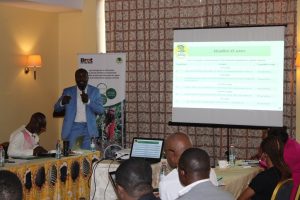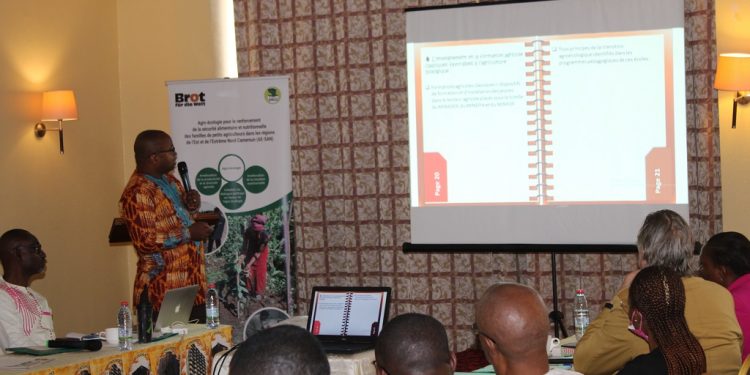By Louvier Kindo Tombe
According to some studies carried out by the civil society organisation (SAILD), Cameroon is lagging behind when it comes to promoting agroecological practices.
Results of the studies were presented to experts during a workshop in Yaounde on September 30, 2022.
“Agroecology is not governed legally in the country and even the ministry of Agriculture and Rural Development (MINADER) has not institutionalized it,” says prof. Joseph Keutcheu.
The absence of these instruments makes agroecology to remain in the informal.
“Most farmers in the country practice agroecology ignorantly,” says Dr. Erasmus Tang, researcher at the agricultural research institute, IRAD.
The objective of the workshop was to brainstorm on the results, and come up with valid points that will help in the promotion of agroecological practices in the country.
Best Practices
An agroecological approach includes a number of agricultural methods, such as diversification of crops, conservation tillage, green manures, natural fertilisers and nitrogen fixation, biological pest control, rainwater harvesting, and production of crops and livestock in ways that store carbon and protect forests.
By contrast, the following practices are already well integrated: organic fertilisation, split fertilisation, reduced tillage, drip irrigation, biological pest control, and cultivar choice.
Agroecological practices also emphasises the importance of local knowledge, farmer empowerment, and socio-economic regulations, such as environmental subsidies and public procurement schemes.
Agroecology has the explicit goal of strengthening the sustainability of all parts of the food system, from the seed and the soil, to the table, including ecological knowledge, economic viability, and social justice.
There is thus an active debate on new farming practices that could produce more food in a sustainable way.

That is where the vision of SAILD fits in. Fighting soil degradation, climate change effects, and the use of synthetic fertilizers.
The programmes director at SAILD, Ghislain Fomo, talking to the press during the workshop stressed on the importance of agroecology.
“The challenges faced by farmers today in their agricultural activities can best be addressed with agroecological practices,” Ghislain said.
He continued saying “we want to introduce a modern agricultural practice and an alternative that will promote food security”.
The various experts at the workshop examined the results of the studies and made contributions that enriches it before it reaches the powers that be.








